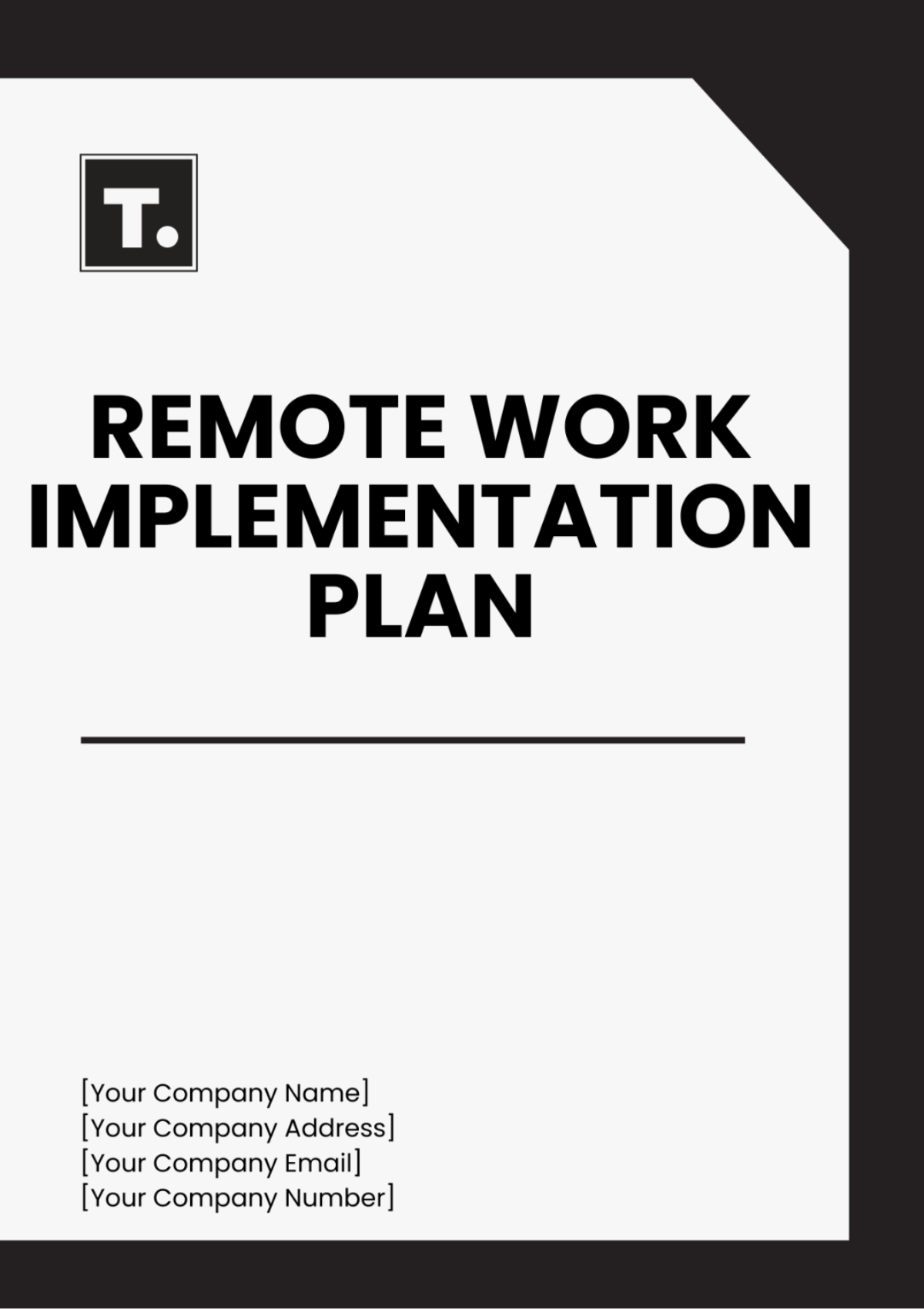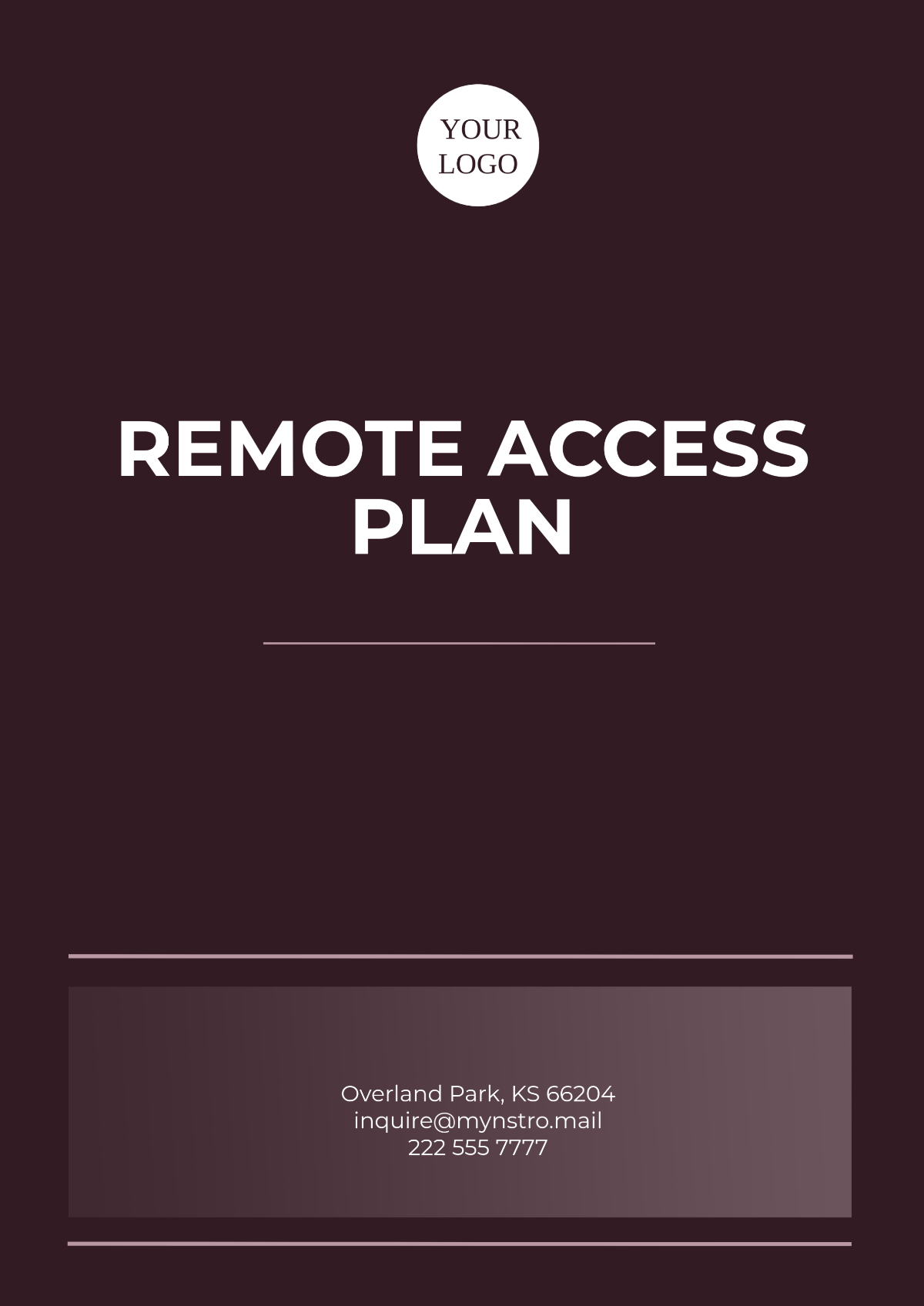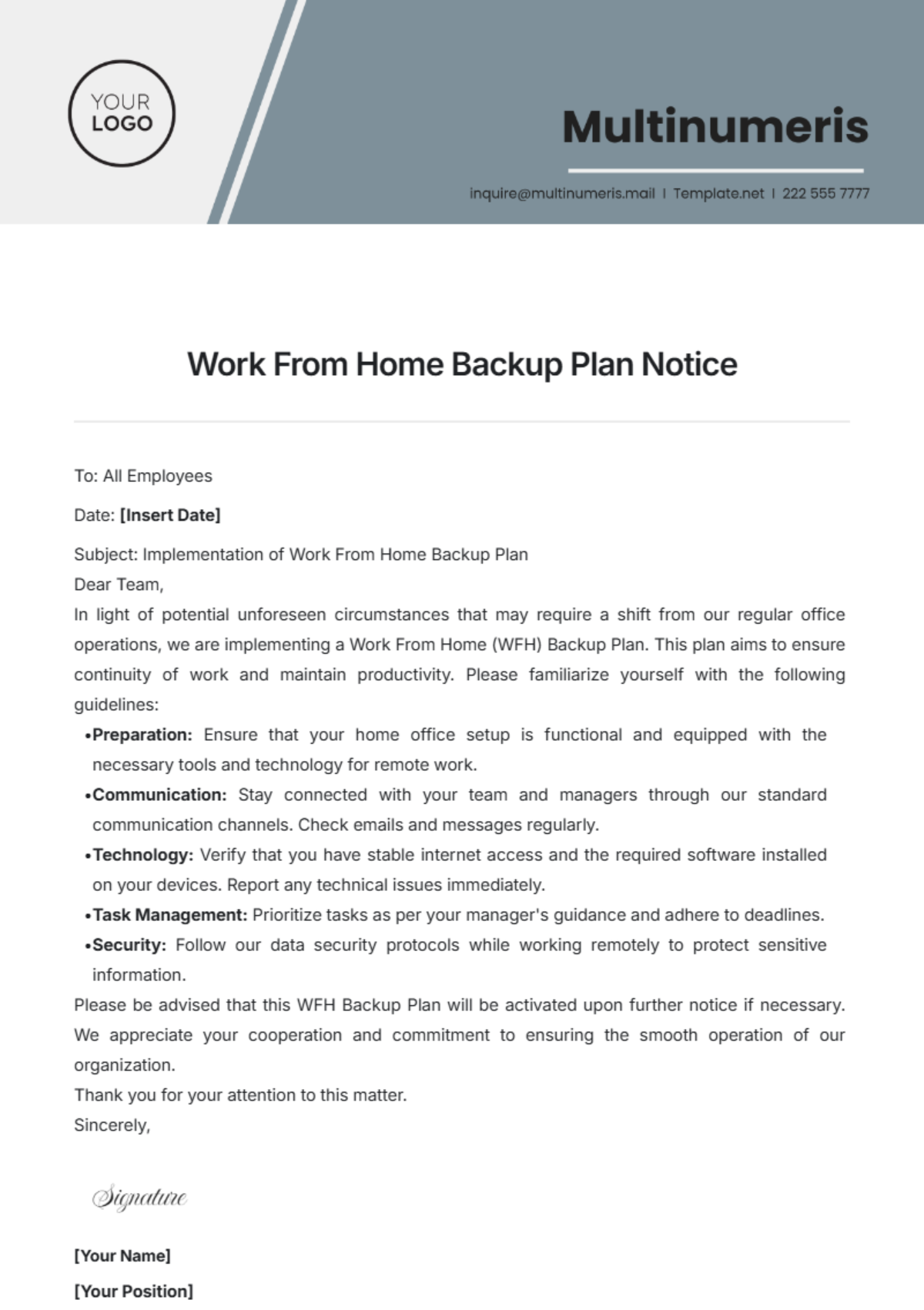Remote Work Productivity Improvement Plan
Prepared by:
[YOUR NAME]
[YOUR COMPANY NAME]
Introduction
This Remote Work Productivity Improvement Plan outlines key strategies and actionable steps to enhance productivity, communication, and efficiency in a remote work environment. It aims to support employees in overcoming common challenges while ensuring alignment with organizational goals.
Objectives
Enhance individual and team productivity.
Streamline communication and collaboration.
Promote employee well-being and work-life balance.
Establish measurable productivity metrics.
Optimize the use of remote work tools and technologies.
Strategies and Actions
1. Define Clear Goals and Expectations
Action Plan:
Communicate daily, weekly, and monthly objectives to employees.
Use project management tools like Trello, Asana, or Monday.com for task tracking.
Establish regular check-ins to ensure alignment.
Outcome: Improved focus and accountability among remote teams.
2. Strengthen Communication Channels
Action Plan:
Standardize communication tools such as Slack, Microsoft Teams, or Zoom.
Set guidelines for response times and meeting schedules.
Create virtual spaces for informal interactions to maintain team cohesion.
Outcome: Enhanced collaboration and reduced miscommunication.
3. Optimize Work Schedules
Action Plan:
Encourage employees to establish consistent working hours.
Allow flexibility to accommodate different time zones or personal needs.
Implement time management tools like Clockify or RescueTime.
Outcome: Better time management and work-life balance.
4. Provide Training and Support
Action Plan:
Conduct virtual workshops on remote work best practices.
Offer training on tools like video conferencing software and cloud platforms.
Provide access to mental health resources and support.
Outcome: A more confident and skilled workforce.
5. Measure and Evaluate Productivity
Action Plan:
Use key performance indicators (KPIs) tailored to remote work.
Regularly gather feedback through surveys and one-on-one meetings.
Monitor progress and adjust strategies as needed.
Outcome: Data-driven improvements in productivity.
Implementation Timeline
Phase | Key Actions | Duration | Responsibility |
|---|---|---|---|
Phase 1: Setup | Define objectives, tools, and guidelines. | Week 1 | HR and Management Teams |
Phase 2: Training | Conduct remote work training sessions. | Weeks 2-3 | Training & Development Team |
Phase 3: Pilot | Implement a plan with select teams and gather feedback. | Weeks 4-5 | Team Leaders |
Phase 4: Rollout | Extend to all employees and refine strategies. | Week 6 onward | Entire Management Team |
Tools and Resources
Communication Tools: Slack, Zoom, Microsoft Teams.
Project Management: Asana, Trello, Monday.com.
Time Management: Clockify, Toggl, RescueTime.
Well-being: Headspace, Calm, Employee Assistance Programs (EAP).
Monitoring and Review
Conduct monthly reviews to evaluate the effectiveness of the plan.
Use employee surveys and productivity metrics for continuous feedback.
Update the plan quarterly to incorporate new tools or address emerging challenges.
Conclusion
By implementing this Remote Work Productivity Improvement Plan, organizations can foster a productive, collaborative, and supportive remote work environment. This approach not only enhances individual and team performance but also ensures the long-term success of remote work initiatives.




